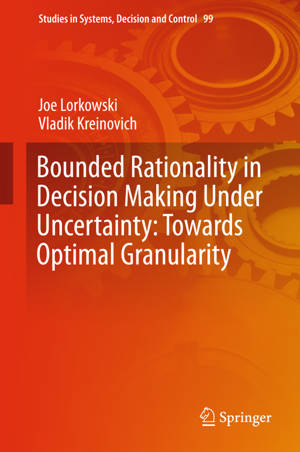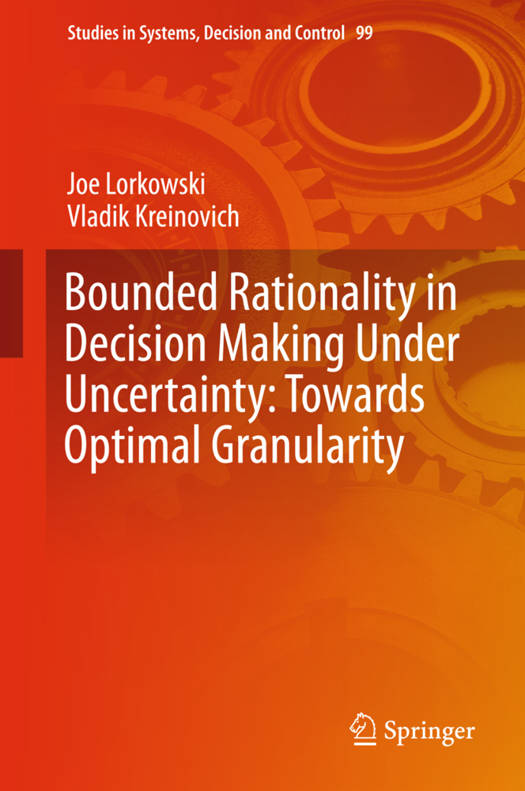
- Retrait gratuit dans votre magasin Club
- 7.000.000 titres dans notre catalogue
- Payer en toute sécurité
- Toujours un magasin près de chez vous
- Retrait gratuit dans votre magasin Club
- 7.000.0000 titres dans notre catalogue
- Payer en toute sécurité
- Toujours un magasin près de chez vous
Bounded Rationality in Decision Making Under Uncertainty: Towards Optimal Granularity
Joe Lorkowski, Vladik KreinovichDescription
This book addresses an intriguing question: are our decisions rational? It explains seemingly irrational human decision-making behavior by taking into account our limited ability to process information. It also shows with several examples that optimization under granularity restriction leads to observed human decision-making. Drawing on the Nobel-prize-winning studies by Kahneman and Tversky, researchers have found many examples of seemingly irrational decisions: e.g., we overestimate the probability of rare events.
Our explanation is that since human abilities to process information are limited, we operate not with the exact values of relevant quantities, but with "granules" that contain these values. We show that optimization under such granularity indeed leads to observed human behavior. In particular, for the first time, we explain the mysterious empirical dependence of betting odds on actual probabilities.
This book can be recommended to all students interested in human decision-making, to researchers whose work involves human decisions, and to practitioners who design and employ systems involving human decision-making --so that they can better utilize our ability to make decisions under uncertainty.
Spécifications
Parties prenantes
- Auteur(s) :
- Editeur:
Contenu
- Nombre de pages :
- 164
- Langue:
- Anglais
- Collection :
- Tome:
- n° 99
Caractéristiques
- EAN:
- 9783319622132
- Date de parution :
- 12-07-17
- Format:
- Livre relié
- Format numérique:
- Genaaid
- Dimensions :
- 156 mm x 234 mm
- Poids :
- 426 g

Les avis
Nous publions uniquement les avis qui respectent les conditions requises. Consultez nos conditions pour les avis.






